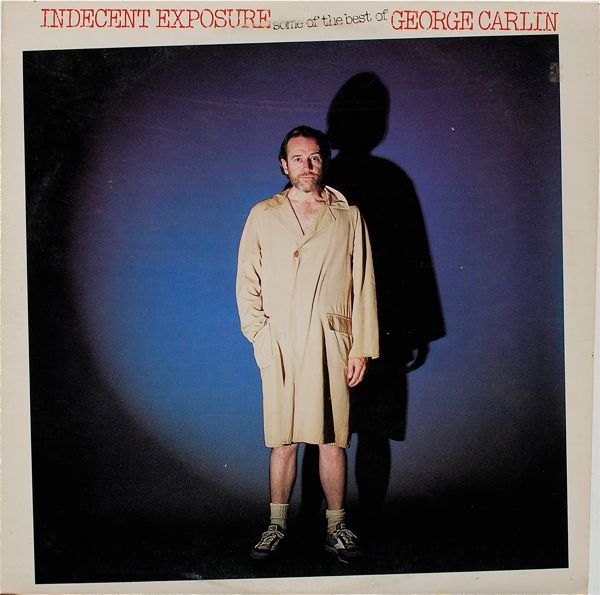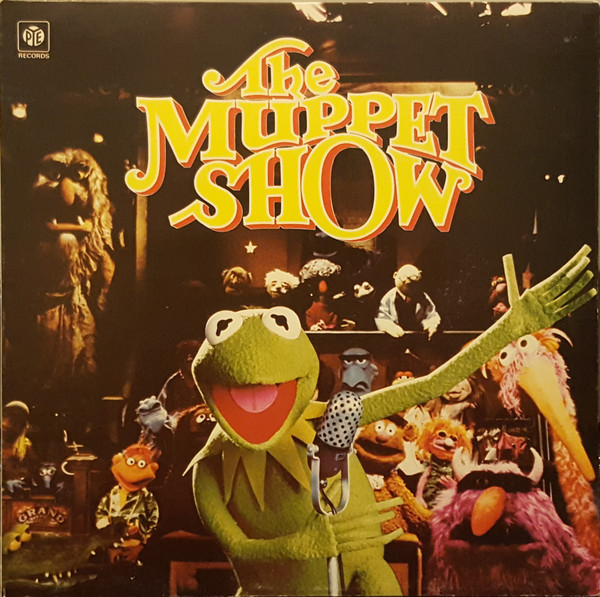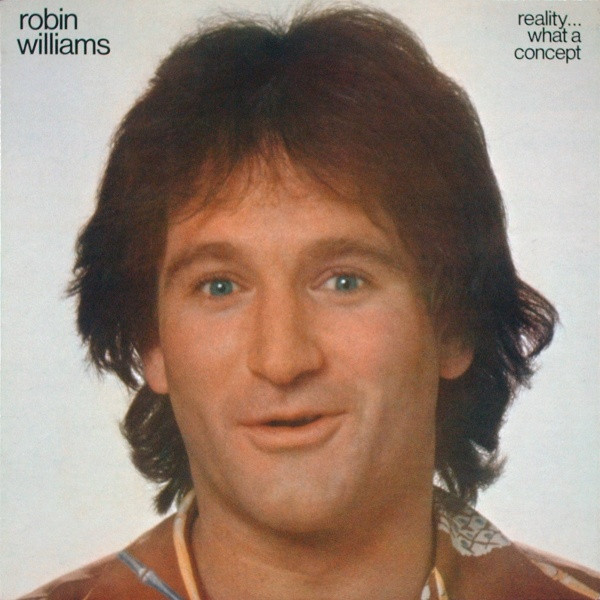The Lost Art of the Comedy Record
In this day and age of hours-long podcasts and Netflix specials, the comedy record may not be as prominent as it was, but its legacy endures.
Comedy albums go as far back as the late 1890s, when American humorist Cal Stewart moonlighted as Uncle Josh for E. Berliner’s Gramophone. But when it comes to what the modern comedy record, history points to jazz producer Norman Granz’s recording of Mort Sahl‘s nightclub routine for The Future Lies Ahead as the genesis of the format in 1958. This format would evolve in many ways as comics like Bob Newhart, Lenny Bruce, Redd Foxx, and Don Rickles took the concept to new heights (and lows) of delivery, philosophy, and atmosphere.
In this day and age of hours-long podcasts, Netflix specials, and TikTok virality, the comedy album may not be as prominent as it was during its peak in the ‘70s and ‘80s when giants like George Carlin, Richard Pryor, Robin Williams, and Sam Kinison were vital and actively releasing new material on cassettes, vinyl, and CDs.
“Comedy can feel disposable now, with things like TikTok pushing attention spans shorter and shorter,” explains JT Habersaat, the Godfather of punk rock comedy, whose new book, “Doing Time: Comedians Talk Stand-Up,” was released this year. “Albums require dedication to the craft, and intent, and that lends itself to a greater comedy experience, I think. You’re never going to have the same feeling watching a clip of Carlin as you will by putting on Class Clown from start to finish.”
Inspired by the classic Gillian McCain/Legs McNeil book “Please Kill Me: The Uncensored Oral History of Punk,” Habersaat spent countless hours talking to a rogues’ gallery of comics about life in the spotlight and on the road, including Patton Oswalt, Brian Posehn, Bobcat Goldthwait, Jackie Kashian, Chris Gethard, Dana Gould, and Neil Hamburger among others.
Habersaat’s book is a deep, personal love letter to the life of a stand-up comic and the distinctive culture surrounding the talented men and women who travel the country making people laugh. For many of these artists, comedy albums served as a gateway to honing their craft. The medium inspired them in myriad ways, much like how jazz musicians look to the masters of their universe.
For JT, the comedy LPs in his record collection reflect a dynamic cross-section of styles that’s indicative of his method of delivery on the stage.
“What’s so unique about comedy records, specifically, is that every one of them is live,” he explains. “I mean, except Weird Al because those songs are produced, or Spinal Tap, which we will get to later. And also Neil Hamburger, Greg Turkington, who is a pal of mine, who actually records his albums in-studio and then adds all of the crowd noise and everything. But aside from a small number of people like that, where it’s very specifically intended to be a put-together piece, every stand-up record is live.”
Habersaat pulled up several titles from his stacks that he feels reflect the art of the comedy album from his perspective.
George Carlin
Indecent Exposure: Some Of The Best Of George Carlin (1978)
“I do this Altercation Comedy Festival every year, and this year is our 10th anniversary. And about year five … the day after the festival, I was wandering through a bookstore here in Austin, and they have a section of rare, signed editions of stuff.
“I walked in and there was that signed [Indecent Exposure] George Carlin record for a hundred bucks. And I said, ‘This is my victory for doing the festival’, and I spent $100 of the $500 I made and immediately bought it. And that’s worth more to me than any amount of money, because Carlin was the king. I have quite a few rare signed things like that, but that Carlin one is up there for me. I have it framed, so I never played it.”
Gilda Radner
Live From New York (1979)
“Gilda Radner was very removed from stand-up, I would say. Like, she was firmly sketch [comedy]. Which is fine. There’s lots of stuff that is, you know, firmly sketch that I think is great. Some of the Kids in the Hall are in my book, and they’re largely sketches. So when they do stage stuff, Scott Thompson will gravitate towards doing his Buddy Cole character. Kevin McDonald [performed at] my festival last year, and he told stories as opposed to doing bits.
“I feel like Gilda was cut from the same cloth. It’s slightly different from stand-up. There’s a preparedness that is reliant on writing something out. All of that springs from the Groundlings, where there’s a heavy emphasis on prepared spontaneity if that makes any sense.”
Rodney Dangerfield
No Respect (1980)
Rodney Dangerfield is a joke writer in the purest sense, right? He’s a joke guy. And arguably one of the best. He’s like a machine gun. He’s like Henny Youngman or Don Rickles. He’s cut from the same cloth as Rickles. There’s a great story in the book. Todd Glass got his start doing Rodney jokes in a bar at the age of 16. And he talks about meeting Rodney, and he was at a casino or something, and how Rodney was just effortlessly hilarious, just like busting balls from the get-go. And that’s what [No Respect] nails so perfectly. The most interesting thing about Rodney is [that] it’s a persona, but also completely him at the same time. It’s an odd case.
Spinal Tap
Spinal Tap (1984)
“I’m so excited for this new movie. The original Spinal Tap, however, remains the funniest movie to me, next to Spaceballs, Blazing Saddles, or Airplane. There’s something about Spinal Tap that just nails it. If you come from that rock ‘n’ roll world, you’ve experienced all these things in some regard. And the music they made for this soundtrack is good, that’s the wild thing. They did a good job on the songs.
“The [songs] feel just goofy enough to be a Warrant song. ‘Sex Farm’ is not that far off from ‘Cherry Pie.’ And the only difference is that ‘Cherry Pie’ got on the radio (laughs). They’re both over-the-top and absurd. Or ‘Big Bottom’ is not that far off from Queen‘s ‘Fat Bottomed Girls.’ It’s above and beyond absurd. What’s interesting, though, is that, by default, once the record and film came out, those songs did become legitimate hits. Spinal Tap played huge venues, and people wanted to hear ‘Stonehenge.’ People knew the songs. And so what started as parody became real rock ‘n’ roll. It’s very unique. I think the closest thing that might come somewhat in the realm of that is Tenacious D or the Monkees. But Spinal Tap is in a complete league of its own. Those guys are playing their instruments. They all learned how to play those songs so that it would match up perfectly when they’re doing it on set.”
Bobcat Goldthwait
Meat Bob (1988)
“Bobcat rules. I just saw Bobcat a few weeks ago. He is really interesting because he’s someone who reached the height of his fame with a persona, right? An onstage persona. Then, at a certain point, he just abandoned that persona. He said, ‘This doesn’t serve me anymore. I’m tired of being locked into this.’ And he pivoted in a way that he did this whole side trip as a writer and director behind the camera, and then back into stand-up without the crazy Bobcat voice.
“But Meat Bob captures that duality of Bobcat. There’s a great quote from him in the book where he says, ‘I was using this persona, but if you go back and look at it, I’m talking about the Iran-Contra Affair.’ He’s like, ‘I’m not using it to be an idiot. I had an agenda of things, important things, that I wanted to talk about.’ And, in some ways, that wild and insane character allowed him to get in stuff that, if he did it straight laced, people would get turned off by. So there’s kind of a weird camouflage with that.”
Henry Rollins
Sweatbox (1989)
“I was so stoked to find this record. There’s a vinyl shop in Austin called End of an Ear, and it’s my favorite record store in the country. They have a new section. Every time I go there, I’ll flip through and find something that I cannot believe I found. And I found Henry Rollins’ Sweatbox there, and it’s such an original pressing that it doesn’t even have anything on the center label, it’s just white, almost like a test pressing.
“Henry is arguably my earliest influence. You wanna talk about the difference between comedy and spoken word? Early on, he was always hilarious, but he had a lot of serious stuff. It’s equal parts sugar and vinegar. There are moments where he’s undeniably hilarious but also brutally not funny. Rollins is a unique case, and to hear Henry on this album in a younger light, still trying to find his full path, I think it’s interesting. The comic in me likes to study that record, where it’s almost like clay. You can see him molding what he’s going to be into what he is now. It’s really like a timestamp.”
Doug Stanhope
Something To Take the Edge Off (2000)
I call Doug Stanhope my comedy Yoda. He was the first guy to give me an opening spot back in 2007 or 2008. I’ve known Doug for a very long time. I always call Stanhope ‘the Grateful Dead of comedy’ because his crowds aren’t necessarily comedy fans, they’re Doug Stanhope fans. It’s a very insular and devoted fanbase that’s unlike any other I know in stand-up. And this record, Something To Take the Edge Off, is great because it captured him at a time when he was still building his name. So he certainly had a core fanbase, but not like it is today. And so there’s a degree of looseness to that record that I think is really great.
Eddie Pepitone
A Great Stillness (2014)
“I always call Eddie Pepitone, ‘the Pixies of comedy,’ because he’s got this dynamic. Eddie will draw you in with a quiet delivery and then yell. He had A Great Stillness, and also his film The Bitter Buddha, out before we even met, so I hadn’t seen or heard either of them until we started working together … We really hit it off when we started touring together, and then I was like, ‘I should go back and check out his stuff so I can be well-versed in my friend’s history here.’
“There’s this one bit on A Great Stillness where he’s talking about going on auditions for inane products and how commonplace that is in Hollywood. And he’s doing a commercial take for fabric softener, and he’s yelling, ‘How did you get the shirt so fresh?’ And it’s basically him having an argument with his wife about the freshness of a shirt while the environment burns, and we live in the pit of despair. It’s so brilliant because it starts small and then explodes. It’s like watching someone set gunpowder on fire and watching as it burns, as it slowly leads up to the dynamite. It’s just incredible.”
Laugh More
-
-
-
-
-
-
The Inside Deluxe Box SetBo Burnham2022Electronic, Rock, Pop, Stage & Screen, Soundtrack3 x Vinyl, Album, Deluxe Edition, Reissue, Box Set, Limited Edition
-
-
Monty Python’s Life Of Brian (Original Motion Picture Soundtrack)Monty Python1979Comedy, Score, SoundtrackVinyl, Repress
-
-
KEEP DIGGING
Don’t miss a beat
Subscribe to Discogs’ email list to learn about sales, discover music, record collecting guides, product tips, limited edition offers, and more.






















